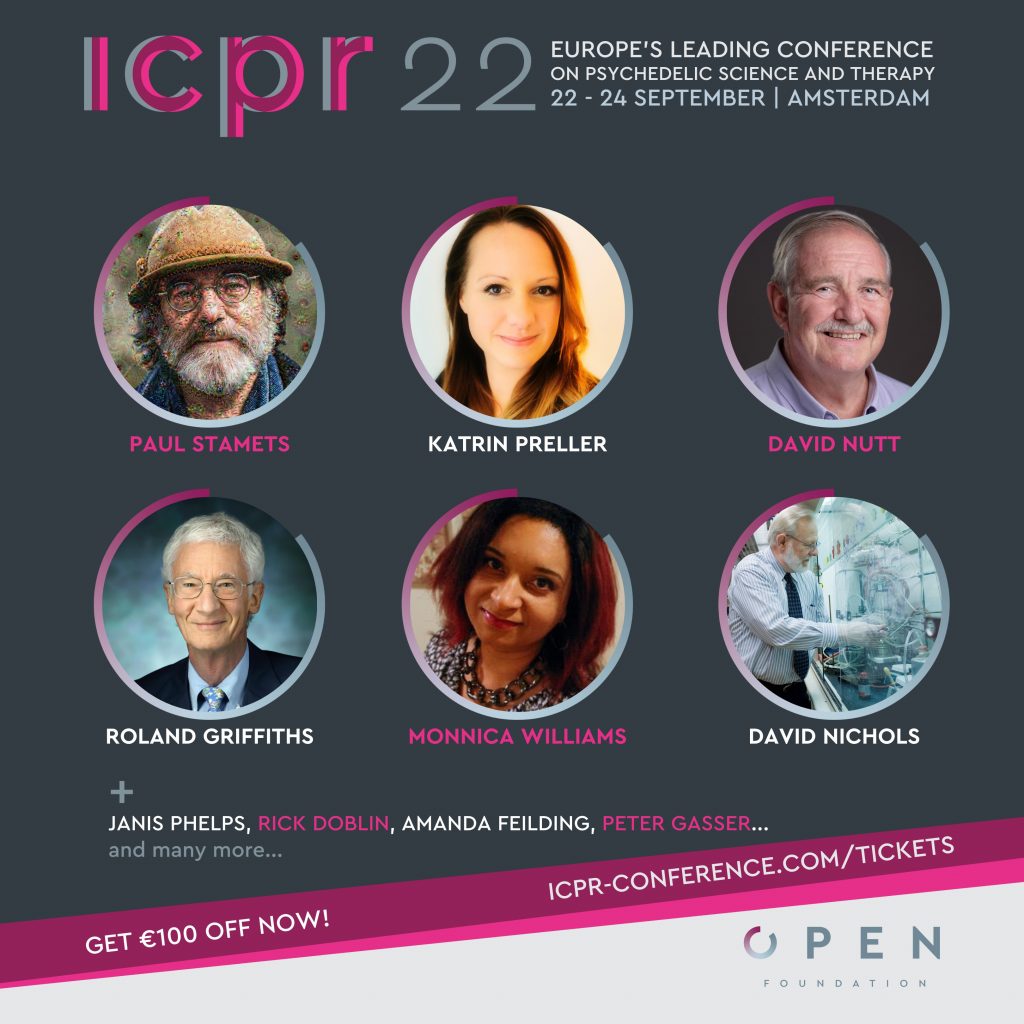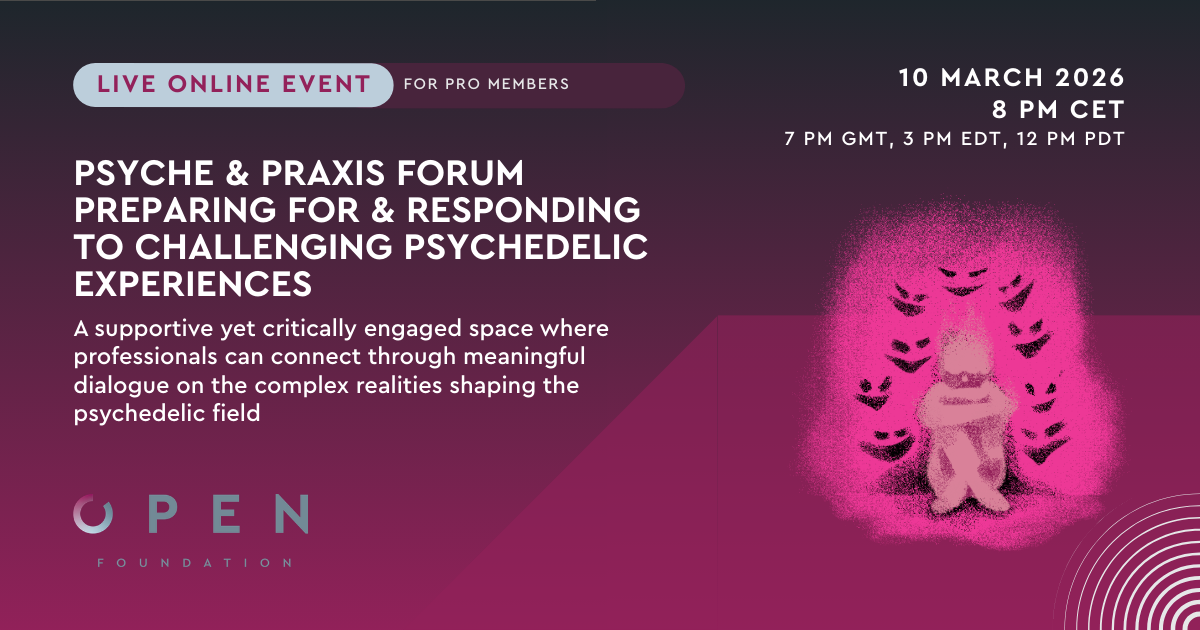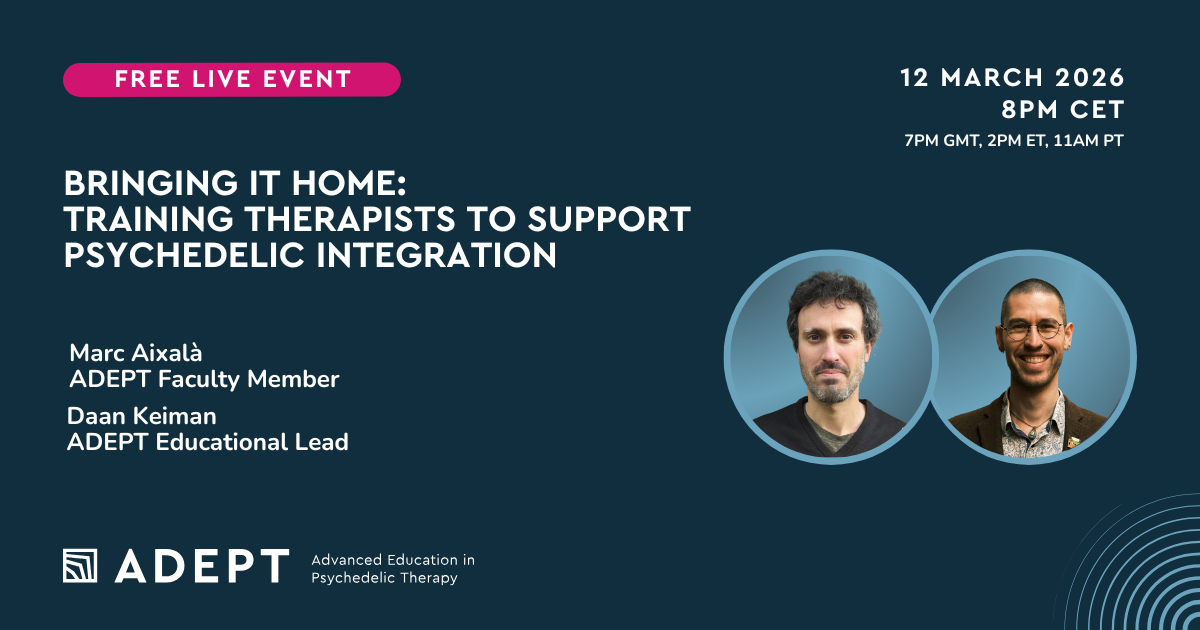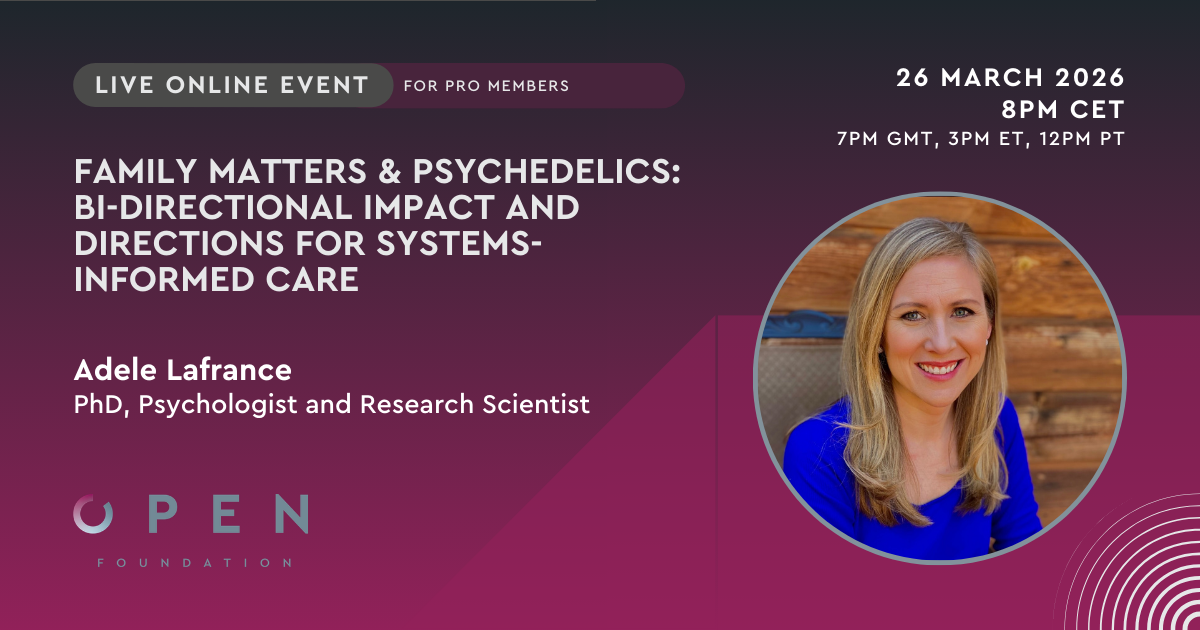Should psychedelic researchers administer psychedelics to themselves? This has been an ongoing debate since psychedelics have been around. Michiel van Elk is a Dutch researcher who studies psychedelic, religious, spiritual and mystical experiences and has received a prestigious NWO (government) grant to study the effects of psychedelics. In a series with Jasper Lucas he discusses hot topics around psychedelic research.
ㅤ
Michiel van Elk, a professor of cognitive psychology at the University of Leiden, used to be very anti-drugs after growing up in a conservative Christian community. A psychedelic experience later in life put him on a path towards psychedelic research.
Van Elk now runs the PRiSM lab, which studies psychedelic, religious, spiritual, and mystical experiences, and has received a prestigious NWO (government) grant to study the effects of psychedelics. His previous work includes themes like religion, spirituality and altered states of consciousness, employing neuroscientific as well as cognitive and social psychology research methods. He is the author of the book ‘A sober look at psychedelics’ – available in Dutch – and will also speak at ICPR 2022.
Jasper Lucas is a Master’s student in Clinical and Health Psychology at the University of Leiden. He aims to pursue a career at the intersection of clinical research and practice, with a special interest in psychedelic-assisted psychotherapy. Jasper and Michiel recently had a wide-ranging discussion about issues surrounding the psychedelic science field.
Van Elk, at a certain point, was planning to develop a protocol which included the self-administration of psilocybin to test the feasibility of the experimental design – but this did not come to pass. This is part one of their conversation – about the self-administration of psychedelics. A topic that was long considered taboo, but is now facing new scrutiny.
Jasper: First off, how did you get involved in researching psychedelics?
Michiel: I first came across psychedelics about five years ago during a sabbatical at Stanford University, where I met some highly motivated psychedelic researchers. Since then I’ve been involved in psychedelic research, initially focused on microdosing truffles. Right now I’m working on a bigger project on the influence of psilocybin on our brain, cognition, and perception, for which I was awarded a VIDI grant from the Dutch Association for Scientific Research (Stichting Nederlandse Wetenschappelijk Onderzoek Instituten, NWO).
Jasper: A VIDI is one of the top government grants you can get as a researcher. What are the aims of your VIDI project?
Michiel: There are three parts to this project. The first is replication, focusing on the Relaxed Belief under Psychedelics (REBUS) model – which has garnered much attention in recent years. There is some evidence in favor of it but there is a lot of discussion on how to specify the model, for example, which areas serve as lower and higher order areas and where exactly the predictions are implemented. Furthermore, there is the question of how exactly one should analyze fMRI data. Through open science practices like preregistration and many analysts’ approaches, we aim to see to what extent existing, general findings can be replicated.
The second part concerns placebo effects. One perspective is that the effects of psychedelics are at least partially mediated by placebo effects because people have expectations about these effects. Another is that psychedelics are essentially super placebos by making people more suggestible, thereby enhancing the placebo response.
Placebo research is an extensive, established field, which includes my own research with the God helmet. We aim to integrate this field of study with research into the psychedelic experience. How do expectations influence the psychedelic experience and how can psychedelics increase the placebo response?
The third part is assessing the commonalities between different ways of inducing altered states of consciousness, including sensory deprivation, meditation and VR. We aim to assess to what extent these altered states are comparable to one another.

Jasper: You have previously mentioned that, initially, you were thinking of beta-testing the protocol by going through the entire protocol yourself or by one of your PhD students, including the administration of psilocybin. You are no longer planning on doing so, but what type of insights would you have liked to gain from this self-administration, was it purely practical to assess feasibility or did you also expect some theoretical implications?
Michiel: It’s actually almost standard practice in experimental psychology and neuroscience to try out the experiment yourself first to see what the subjective experience is. You can really learn a lot from it. But, like you said, the most important reason to self-administer for this current protocol is to assess feasibility. Are the instructions clear? Is it realistic to ask people to focus on the tasks for that long? The second reason is that almost everyone involved in this research has experience with the natural versions of the substances we use, whereas we use the synthetic versions for the study. The question of whether the natural and synthetic versions are comparable is an open one. In addition, the context is different. How is it to have these experiences in a clinical setting like a hospital. How can we facilitate the experience by making this clinical context a bit more pleasant?
Jasper: That is actually very interesting to hear. I always thought that self-experimentation was historically emphasized specifically for research with psychedelics but it’s actually a broader norm that researchers test their protocols themselves first. When it comes to modern research involving psychedelics, this becomes complicated because of the stigma on psychedelic use generally and self-administration by researchers specifically, based on historical examples like Timothy Leary for example.
Michiel: Indeed. Certain effects are intuitively experienced like Stroop or Simon effects. These effects are so “right in your face” that you immediately understand what they are when performing the task. This facilitates an understanding of what cognitive conflict means. In certain fields, it is standard practice for researchers to use themselves as participants, for example in the field of visual processing where you need a large number of trials and highly trained participants that need to fixate on a specific point for two hours at a time. The average university student would not be able to do this. Of course this can only be done for very basic processes where understanding the aims of the study does not influence the results.
Jasper: Really interesting, I never knew.
Michiel: Yeah, it’s funny how this topic came up now. I had never thought of it as an argument in favor of self-administration before.
Jasper: Besides the informal stigma on self-administration, I assume there is some formal reason why the board of ethics would not authorize it. Did you try to get permission and fail and, if so, what was their reasoning?
Michiel: No, that’s a misunderstanding. We toyed with the idea for a bit while writing the protocol. But METC permission is already very difficult in and of itselft. We wanted to make it less complicated for ourselves. There’s also the question of the public perception of our research. I remember someone pointed out to me that it would be rather awkward if one of my PhD students and I were seen coming out of the experiment room smiling and giggling about the bizarre experience we just had, despite the best intentions on our part.
Jasper: Of course what Leary did was quite different. He took psychedelics with his students in an informal setting as a means of researching them. He didn’t do this to establish the feasibility of a protocol he was working on or anything. But the stigma that resulted from that period is still felt today.
Michiel: Yeah but of course there’s a broader question at play here. What is the role of self-administration by clinicians. I interviewed a psychiatrist for my book who said he doesn’t need to have tried all the medications he gives his patients himself first. Some psychiatrists disagree though, and argue that it is actually important to try certain medications such as SSRIs or Ritalin to get an understanding of their subjective effects. Still, I’m not sure whether I support self-administration of the sort that we were planning to do. You could probably gain similar insights by using a few experienced users, you don’t need the first-person experience for that. I personally find self-administration interesting mostly as a source of inspiration, which I see a lot in other psychedelic researchers who use it a lot in their personal life. It’s one thing to use it as a personal source of inspiration and quite another to do so to improve the research that you’re doing.
ㅤ
This is the first part of Jasper and Michiel’s conversation. The next part will be on the placebo effect. Follow OPEN on Instagram, LinkedIn, and Twitter – or subscribe to OPEN’s Newsletter – to stay up to date for its release.















